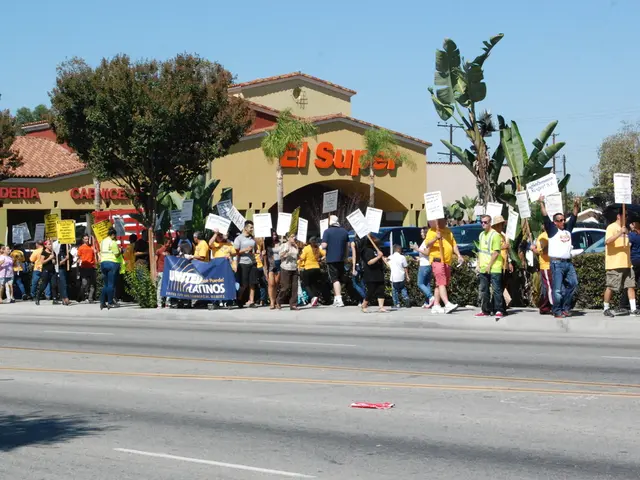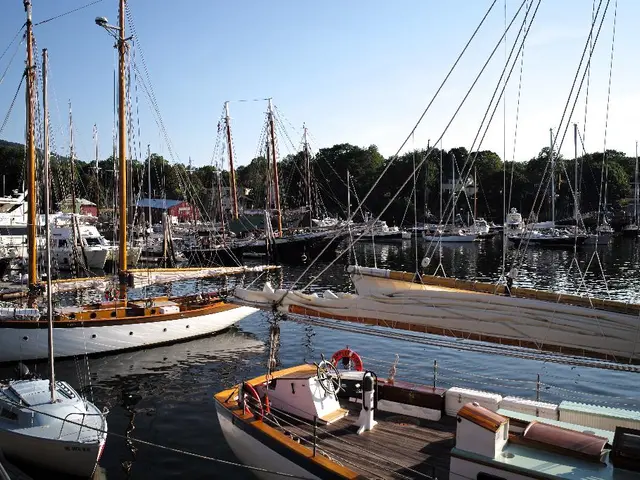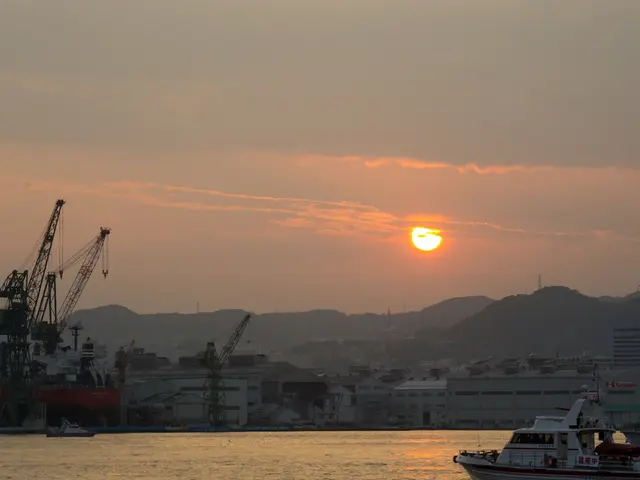Taiwan faces imminent shortage in satellite communications, asserted space chief
Taiwan, currently lacking its own satellites, is making significant strides in the space industry. The island nation plans to launch the first of six low Earth orbit (LEO) satellites in 2027, as part of its Beyond 5G LEO Satellite program. This initiative is a crucial step towards establishing Taiwan's own rockets and launch site, a goal the country aims to achieve within the next decade.
The Beyond 5G LEO Satellite program is not just about advancing technology; it's about ensuring national security. Taiwan is striking deals with satellite companies around the world, including the US company Astranis, SES of Luxembourg, Amazon's Kuiper, and Canada's Telesat. These partnerships are aimed at securing backup telecommunications in case of war or natural disaster.
The importance of these backup systems was evident in 2024, when a 7.4-magnitude earthquake struck Taiwan's east coast, knocking out communications. At that time, Eutelsat's satellite system was used for the first time in Taiwan, providing much-needed communication services during the disaster.
Taiwan's Space Agency director, Wu Jong-shinn, has emphasised the urgency of the situation, stating, "We can't rely on one side." Taiwan needs 150 LEO satellites for 'basic communication resilience' in case subsea telecoms cables are damaged or cut. This need is particularly pressing given Taiwan's constant threat of invasion by China, which claims Taiwan as part of its territory and has increased military pressure in recent years.
The economic sense of countries developing their own communication satellite networks has been a topic of debate. Some question the necessity when commercial options are available. However, Taiwanese expert Cathy Fang believes it would be dangerous for Taiwan to rely solely on foreign satellite operators for phone and Internet signal during a war. Fang suggests that Taiwan needs to cultivate its own satellite industry.
Taiwan's efforts in the space industry are not without controversy. SpaceX, led by Elon Musk, dominates the satellite communications sector with 8,000 satellites. However, its ties with China and previous comments about Taiwan have angered the island. In fact, Musk has admitted blocking a Ukrainian attack on Russian warships by turning off Internet access to Starlink, a move that has raised concerns about the potential misuse of such technology.
Despite these challenges, Taiwan is forging ahead. The Industrial Technology Research Institute (ITRI) was initially selected as Taiwan's partner for developing its own communications satellites under the Beyond 5G LEO satellite program. Taiwan is also planning to launch a second optical remote sensing satellite in November from the Vandenberg Space Force Base in California on a SpaceX rocket.
The Ukrainian conflict has highlighted the vital role satellite communications can play in times of conflict. Ukraine has found SpaceX's Starlink to be a vital communications tool during its conflict with Russian troops. As Taiwan faces similar threats, its push towards self-sufficiency in satellite technology takes on a new significance.
The clock is indeed ticking for Taiwan. With the US officials previously citing 2027 as a possible timeline for a Chinese invasion of Taiwan, the need for self-reliant communication systems has never been more urgent. Taiwan's journey towards its own satellite industry is not just about keeping pace with global technological advancements; it's about ensuring the island's survival in a potentially volatile region.
Read also:
- Achieving Successful Bonsai Grafting: Selecting the Appropriate Scion and Rootstock for Harmony
- European consumers are on the brink of experiencing a significant leap forward in electric vehicle (EV) charging technology, as Chinese automaker BYD prepares to unveil its innovative advancements.
- Recycling Business Transforms Steel and Aluminum Scrap into Reusable Materials
- Munich Airport unveils the largest electric vehicle charging station in the region of Bavaria








